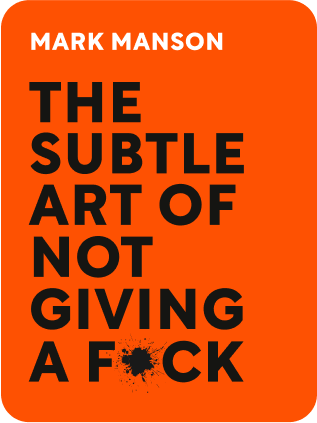

This article is an excerpt from the Shortform book guide to "The Subtle Art of Not Giving a F*ck" by Mark Manson. Shortform has the world's best summaries and analyses of books you should be reading.
Like this article? Sign up for a free trial here .
Why are problems good for your mental health? Why wouldn’t you be happy if you lived a stress-free life?
Despite how it sounds, living a stress-free life wouldn’t make you happier. When we overcome problems it leads to satisfaction and improvement. Without problems and stress in our lives, our lives would be stagnant and we’d never learn.
Keep reading to learn why a stress-free life wouldn’t make you happy.
You Don’t Want a Stress-Free Life
We tend to think of problems as something we need to get rid of once and for all in order to be happy. But problems or challenges are never-ending. This is actually a good thing because solving problems leads to satisfaction and improved circumstances.
You shouldn’t want a stress-free life, because without problems, you can’t be happy and wouldn’t have an opportunity to learn and improve.
When you solve one problem, you create new ones. You replace your challenges with better ones that you would rather deal with. For instance, when you address a health problem by joining a gym, you add other problems: having to get up early to go to the gym, obtaining transportation, and paying the fees. You shouldn’t be overwhelmed by having to solve new problems that pop up — it’s all part of the journey.
Problems don’t ever go away; their nature changes. Warren Buffett still has money problems like all of us — they’re just different problems from what we have.
How People Get Derailed
- Denying problems: This makes you feel good for a while, but denying reality requires you to distract yourself and repress your true feelings. This makes you anxious and neurotic in the long term.
- Striving for a problem-free life: When you strive for a life free of problems and pain, you get disconnected from the real world, and don’t get to learn from solving problems.
- Developing a victim mentality when you believe you can’t solve your problems. To feel good in the short term, you blame others or your circumstances. But in the long term, this makes you feel helpless, depressed, and angry.
- Blame and denial provide a “high,” for instance by feeling morally superior. Self-help experts focus on giving you highs, through exercises that make you feel better temporarily, but don’t address the underlying issue. You become addicted to these highs or short-term tactics to feel better. But that leads to worse pain later when you’re forced to confront the real issue.
Strive for problems you’ll feel good about solving, that improve your life or give you a sense of accomplishment and new skills. Good problems and challenges can be straightforward — for example, eating food that’s good for you — or more complicated like fixing a relationship.

———End of Preview———
Like what you just read? Read the rest of the world's best book summary and analysis of Mark Manson's "The Subtle Art of Not Giving a F*ck" at Shortform .
Here's what you'll find in our full The Subtle Art of Not Giving a F*ck summary :
- How to clarify what's important to you (and not just what you think should be important)
- Why it's okay for things to not always go well in life
- Why you need to care about fewer things






